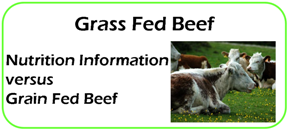|
Eating Healthy Begins with EducationWhy aren't college students eating healthy? Researchers in Family and Consumer Studies at Kent State University tested the hypothesis that college students would make healthier food choices following a detailed course in nutrition. While this hypothesis may seem a little obvious, keep in mind we are talking about 18-24 year old college students. It is quite possible that they are making their food choices based purely on taste and indulgence despite any nutritional knowledge. You know, that "invincibility of youth" mindset may be at work. Instead, Eun-Jeong Ha and colleagues showed that an interactive one-semester course in nutrition significantly altered the eating habits of sophmore-level college students. Since every mother in America wants to know exactly how to get their teenager to make healthier food choices, I'll tell you exactly what the course included:
In the end, these college students changed their eating habits to include more whole grains (the only consumption factor measured). But true to teenage stereotypes, only 13% met their daily whole grain requirements by the end - compared to a mere 1% at the onset of the study. But, while 58% of total whole grain consumption was in the form of sugared granola bars and cereals at the beginning of the study, those foods made up only 26% of the whole grain consumption at the end. No follow-up was made on students to determine the longevity of these dietary improvements. The implication of this study is that with thorough education, some one-on-one time, and some snooping into what exactly a teenager is eating, teenagers can learn to eat healthy. When was the last time you had a conversation with your teenager about eating healthy... specifically, reading a food label? Portion sizes? The role of nutrition in disease? The nutritional value of their food choices and how they compare to RDA's? The effect of lifestyle choices like exercise on health? If you have younger children, you can start with nutrition games for children, Return to Current Science News from Eating Healthy Go to the Science of Natural Health Homepage from Eating Healthy |












